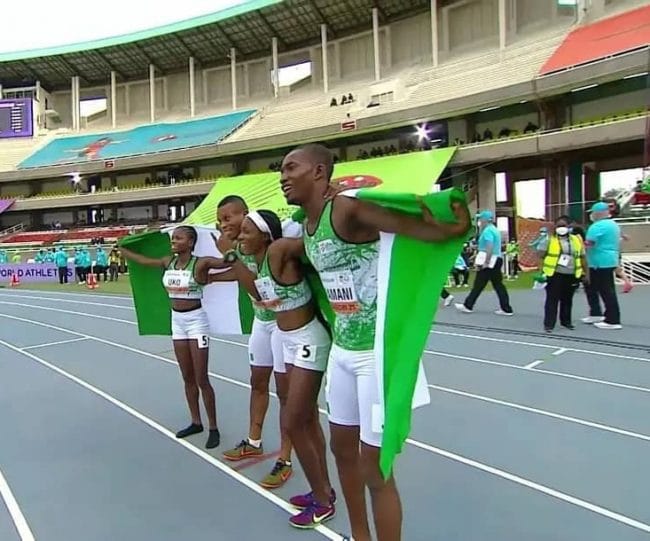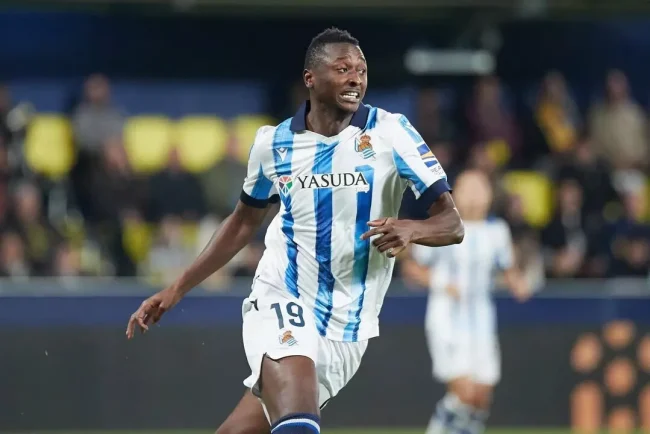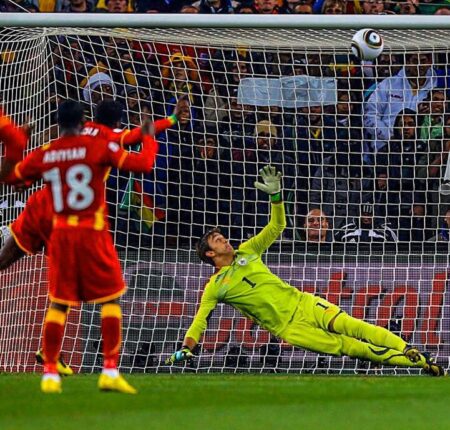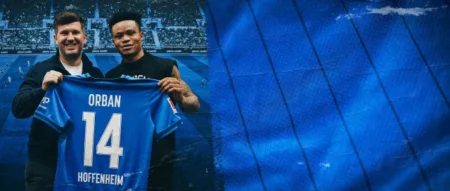It is early morning of Friday, October 1, 2021. It is the 61st anniversary of Nigeria’s Independence.
It is a public holiday when all Nigerians are expected to celebrate their ‘liberation’ from the shackles of colonial rule, the start of self-governance and the establishment of a country designed in their own image and likeness, and that runs independent of any third-country interference.
So, for emphasis and clarity (I am digesting this slowly), each country chooses non-interference by third-party countries and establishes what it considers its best form of governance structure and system. That’s they would celebrate Independence Day because it marks a turning point in their history, a liberation from mental and physical ‘enslavement’, the bondage of indoctrination and domination, and the freedom to associate and to operate.
Indeed, independence of any sort is sweet and worth celebrating.
That’s why, also, when sports federations seek their own form of Independence no one should begrudge them. It is the first article in all sport federations constitutions. It has become their fundamental right – to be independent. What is good for the goose is good for the gander. What is good for the country is also good for sports federations
So, this morning, I am thinking about sport federations and government. Their relationship in the Third World is umbilical in nature, one tied to the other like Siamese twins. Severance is often fatal to sport and to the federations.
Also Read – Odegbami: How Important Is The Football Field To African Football?
The more I think about it, the more I realise that a happy medium must be found in order for sports to grow and to thrive in a Third World country environment where government’s funding of many aspects of sport development and competitions is inevitable.
What is required is for the federations (or associations) to constructively seek their independence without shirking any of their responsibilities. They can also cede some rights and enjoy the greater benefits of a good relationship with government. They cannot have it both ways, eat their cakes and still have it. Oiling the interface between them often offers the best option, but up till now, 61 years after Independence, that interface has been hard to identify and even harder to lubricate.
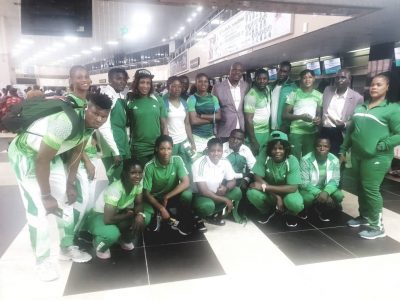
At a higher level, countries do not have to join the United Nations to exist, but if they choose to, the UN never gives them rules and guidelines about how they should run the affairs of their countries, even though there are certain fundamental norms and rights that must not be offended.
In like manner, no international sports organization writes, or drafts, or approves sports federation constitutions. That would be a clear third-party interference. They only keep copies of the constitution with them when issues of conflict are brought to their attention, and to ensure that certain basic norms and principles are followed, and that the content of the constitutions is arrived at by the consensus of the general assembly of the body the membership of which is equitably representative of all relevant affiliates.
How the federation runs their day to day activities and programs are also entirely their internal business provided they are not offensive to the fundamental principles binding and guiding general organization, and are not in breach of statutes of the international organization.
So, the constitution of sports federations is the key that opens the doors to proper sports governance, good relationships amongst partners and affiliates and development at all levels.
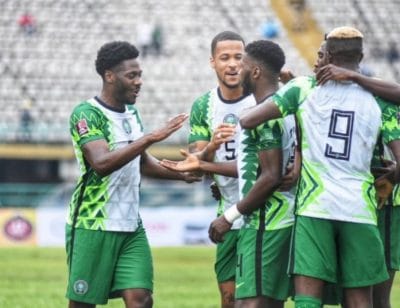
Before now, in the past 30 years, some powers in sports have been manipulating them to create divisions and crisis, and always use the threat of intervention by their international organisations to scuttle any opposition and to perpetuate the decay in the system.
We have gone through this same process for 30 years. We must not fall for it any more.
The sports federations that must partner with the federal government of Nigeria in developing sports in the country and in attending some major international events must be ready and willing to present its constitution to the government to ensure that the greater objectives of development of sports in the country are captured and represented in the constitutions.
We have had two cycles of sports development in our history, each lasting about 30 years each. It is one of the most depressing things I have had to do in a long time, thinking through the story of Nigerian sports from 1990 and seeing how and where we got it all wrong and set out on a road to self-destruction through ignorance, greed and the pursuit of narrow interests.
I have been a witness to this whole journey, two cycles in 60 years.
The first 30 years were the ‘good years’ of Nigerian sports. The next 30 years can be considered the ‘bad years’ of Nigerian sports despite Nigeria’s greatest haul of medals and trophies in the period. Those were the lingering effects of the foundations laid before 1990 still producing great results that could have skyrocketed in the 2000s had the process been sustained rather than truncated.
Also Read – Odegbami: The Pawn And The Prize – Mr. Sports Ambassador!
We are about to enter the next cycle.
It is an anticipated 30-years period that could hold either of two promises as Nigeria and sports tag along with it, perched on the edge of a cliff. Nigeria must leap from this precipice. It will either be a plunge to death into the abyss below, or the country would discover that it actually always had wings, and will ‘fly’ into the skies of prosperity and true freedom.
The present Minister of Sports has been tinkering delicately with what has been developing positively for some time now in the resolution of the crisis in Nigerian sports, and the loss of all vestiges of sports development processes and institutions in the country. He is gradually and steadily putting his act together. He is close to the end now of a journey that promises success. He must finish the race…and win it!
He must get the sports federations to include articles in their new constitutions that are domesticated to operate in tandem with Nigerian laws, sports policies, genuine stakeholders, and greater national agenda.
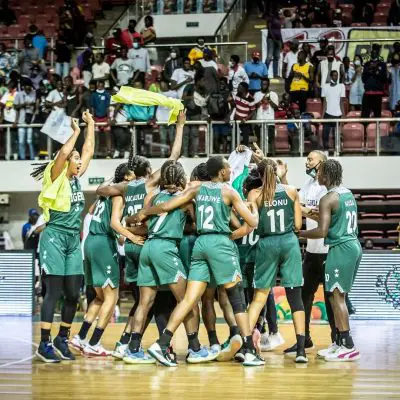
International bodies don’t write constitutions for national federations, otherwise there would be a general one distributed to all countries. Each country creates its own constitution. It is a local matter, entirely. It attracts no international interference or approval, in the true sense, except where persons want to be mischievous and involve them in the process, a situation that has held Nigerian sports back for several decades.
The constitution of all sports federations must have the input and guidance and supervision of the Ministry of Sports for it to secure government support and a good relationship with government.
Every Sports federation must therefore involve the ministry in the process of creating the constitution to ensure the best interest of the country, of genuine stakeholders, and indeed all interests reflecting a made-for-Nigeria document to guide Nigerian sports to achieve loftier heights and grander visions beyond medals and trophies.
As I continue my thinking process this morning, I see something big about to happen in Nigerian sports.
A new 30-year cycle has begun under Chief Sunday Dare. He must get it right by being courageous and finish what he believes to be right. He should not be fazed by empty threats by international bodies that preach non-interference but do so themselves by approving what is not their business to start and end with. Let the Minister keep doing his microscopic and forensic checks and inquiries. He is on the right path.
Happy Independence anniversary to all Nigerians.
Got what it Takes?
Predict and Win Millions Now






